"I never thought of myself as an activist. I was just me…There are so many ways of fighting. "
Carol Van Strum is being modest when she describes herself as a “good” writer. Her book, A Bitter Fog, was published in 1983 and brought widespread awareness to the pesticides that had been harming her own family, her community of Alsea, Oregon, and many other areas in the Pacific Northwest. She could never have published her book without her friend and longtime collaborator Susan Parker. Together, the two friends each found their place in a community effort to protect human and ecological health from harmful exposure.
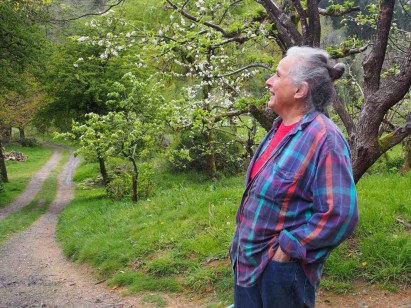
Susan Parker and Carol Van Strum, now long time friends, first met after Susan read a letter to the editor written by Carol’s former husband about the spraying of roadside pesticides. The letter described the spray along the Van Strum’s property and the nearby river. Her four children were all sprayed and they began showing health effects from exposure to these chemicals. Susan and a friend knocked on Carol’s door and have been working together ever since.
After these two women connected over shared concerns, Susan Parker became involved with Five Rivers Organizing Group (FROG), a community group that was able to join coastal range communities all experiencing the same effects from pesticide use. Susan explains, “We were all seeing deformed wildlife. We were seeing deformities amongst the livestock that we had on our little farms… And so we decided to meet with the Forest Service.”
Carol continues where Susan leaves off: ‘’We were very naive. Extremely naive. We tried to negotiate with the Forest Service. We really… thought if we just told them what was happening, they would stop. ‘’
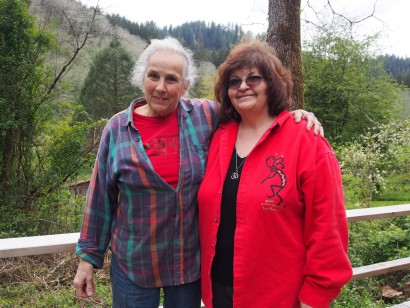
Spraying continued, however. Their shared frustration and exasperation led to a change in tactics. Carol started to research the chemicals that were sprayed on her children, “Well that was the idea of the book [A Bitter Fog]… to tell the stories about people that got together to fight the Federal Government. I mean that was kind of unheard of at that point. But then, when I started writing their stories down, I realized no one’s going to know what I’m talking about — and that was when I started researching the chemicals and the history of them.”
Carol began to realized the importance of sharing her experience,“this was much bigger than just our individual stories.” She explained “it was all tied together because what we had was the EPA, the Forest Service, the USDA, the whole government attitude was that we were out here, anything we say is just anecdotal, there’s no scientific proof that these things can do these kinds of harm.”
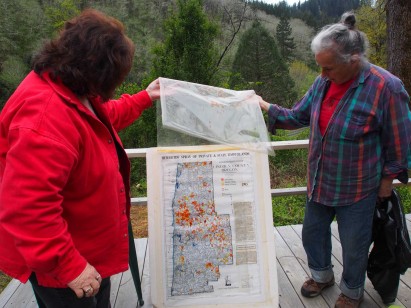
While working with her community, Susan realized that some of the people who witnessed firsthand the most shocking impacts of these pesticides were not comfortable having their name attached to any documents or organizations. These mill workers and loggers saw what kind of damage these chemicals were having on wildlife, witnessing unnatural events like, “finding fawns with no eyes.”Susan recalls having 100% support and even donation money from mill workers and loggers but also have them express fear of their support being traced back to them. This speaks to Susan’s community organizing skills, working within complex community dynamics to find common ground.
Susan and Carol have experienced firsthand what it’s like to have your personal testimony devalued and characterized as merely ‘anecdotal’ evidence.
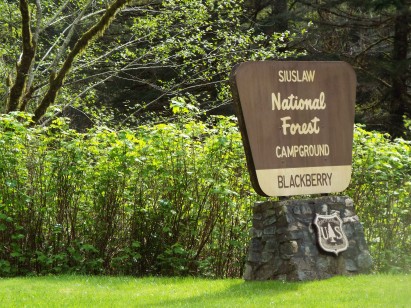
For Carol it comes down to consent. “We should have the right to say no!” she explains, “no, you have no right to expose me without my informed consent. And number one, you haven’t informed me because you haven’t told me what the effects of it are. And number two, you don’t have my consent. Instead, we’re letting them get away with putting the responsibility on us to pack up and leave, take our animals away? I mean what are we supposed to do? What happens to our gardens?”
Carol urges that the legitimacy of the safety of these chemicals be questioned, “demand that they produce scientific proof — peer-reviewed, publicly available studies — that their chemicals are safe for people, animals, fish, etc. and actually have any benefit to a healthy forest ecosystem. They have no such proof, I assure you, so don’t let them intimidate you with talk of science!”
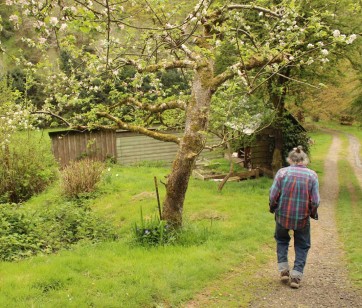
Speaking to Susan and Carol, you get the feeling that they are not intimidated easily. Especially after listening to them describe their work of organizing their community, starting committees, creating awareness and working with various government agencies. Both have achieved so much in their fight against the misuse of pesticides. Before leaving, we asked where they see hope in this movement today.
Carol sighs, half exasperated and half excited, she explains, “What should we tell young people. I don’t know! You know what you have to do? The only way I can keep going is to find some unholy glee in causing trouble even for one bureaucrat. You have to look for the fun in it, somewhere.”

